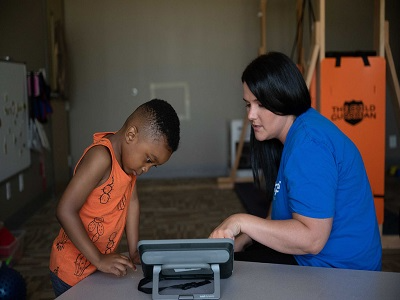Understanding the Importance of Compassionate Care for Families Affected by Autism

HopeBridge explained that autism spectrum disorder (ASD) is a neurological disorder that affects communication, social interaction, and behavior. It is estimated that one in 54 children is diagnosed with autism in the United States, making it one of the most prevalent developmental disabilities. Families affected by autism often experience challenges and difficulties, such as managing emotions, behavioral issues, and navigating the healthcare system. Providing compassionate care is essential to support families affected by autism and improve their quality of life.
Compassionate care involves understanding the unique needs of individuals and providing empathetic and supportive care. For families affected by autism, compassionate care means going beyond just medical treatment and offering emotional support, education, and resources for coping with the challenges of ASD. The following are some key components of compassionate care for families affected by autism.
Firstly, healthcare providers should strive to create a safe and welcoming environment. Many individuals with ASD have sensory sensitivities and may feel overwhelmed in a clinical setting. Healthcare providers can help alleviate anxiety by creating a calming atmosphere with soft lighting, quiet spaces, and comfortable seating. Visual aids such as picture schedules or social stories can help individuals with ASD understand what to expect during their visit.
Secondly, healthcare providers must prioritize effective communication. Individuals with ASD may struggle with verbal communication and rely on nonverbal cues such as gestures, facial expressions, or body language. Providers should take the time to listen and understand the unique communication style of each individual. Additionally, clear and concise instructions, avoiding metaphors, and using simple language can help improve communication.
Thirdly, healthcare providers must provide education and resources for families affected by autism. Parents and caregivers of individuals with ASD often face numerous challenges, such as managing behaviors, accessing services, and advocating for their loved ones. Providers can offer support by providing information about community resources, educational materials, and support groups. Additionally, they can assist families in navigating the healthcare system by providing information about insurance coverage and coordinating care.
Finally, healthcare providers should approach care with empathy and understanding. Families affected by autism may face stigma and judgment from society, making them feel isolated or unsupported. Providers should take the time to listen to their concerns without judgment and provide support and validation. Acknowledging the challenges faced by families affected by autism can help build trust and establish a positive relationship between the provider and the family.
In conclusion, providing compassionate care for families affected by autism is essential to improve their quality of life. Healthcare providers must create a safe and welcoming environment, prioritize effective communication, provide education and resources, and approach care with empathy and understanding. By implementing these key components of compassionate care, families affected by autism can feel supported, empowered, and better equipped to manage the challenges of ASD.








